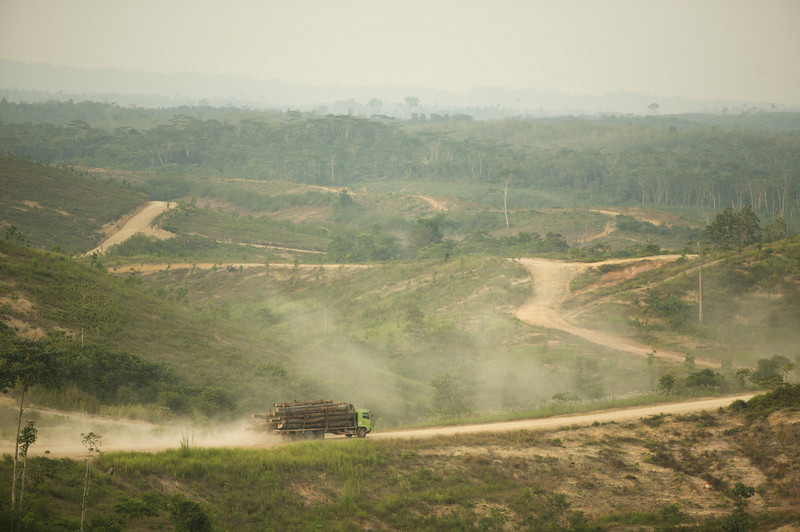 Asia Pulp and Paper (APP) is Indonesia’s largest paper company and the fourth largest in the world. Largely driven by the pulp and paper industry, the clearing of rainforests and draining of peatlands in Indonesia has become a huge source of greenhouse gas (GHG) emissions that cause climate change, making Indonesia the third largest emitter of GHG’s after China and the U.S. APP’s paper soon leaves Indonesia for international markets and company supply chains around the world, including the U.S., Europe and Japan.
Asia Pulp and Paper (APP) is Indonesia’s largest paper company and the fourth largest in the world. Largely driven by the pulp and paper industry, the clearing of rainforests and draining of peatlands in Indonesia has become a huge source of greenhouse gas (GHG) emissions that cause climate change, making Indonesia the third largest emitter of GHG’s after China and the U.S. APP’s paper soon leaves Indonesia for international markets and company supply chains around the world, including the U.S., Europe and Japan.
In 2008, Asia Pulp and Paper hired U.K.-based consultants, Environmental Resources Management (ERM), to calculate the carbon footprint of the papers APP manufactures in Indonesia. In calculating the carbon footprint of APP’s paper fiber supply, ERM excluded from their calculations the high emissions associated with tropical deforestation and draining of peatlands. Using this flawed methodology, ERM calculated APP paper to be virtually “carbon neutral”, an unfortunate misrepresentation of APP’s actual carbon footprint. APP, in turn, has been promoting this misinformation widely with its customers and stakeholders.
In order to develop a more accurate carbon footprint estimate of APP’s paper, RAN, working with the Japanese Tropical Forest Network (JATAN), re-calculated APP’s carbon emissions by including the carbon emissions from deforestation and peatland decomposition associated with the Indonesian fiber supply of APP’s pulp and paper mills.
Our analysis estimates the carbon footprint of APP’s paper production in Sumatra to be in the range of 16–21 tons of CO2 per ton of paper. This is nearly 550-700 times higher than the ERM estimate, which did not include these land use sources of carbon emissions, of 0.03 tons of CO2 per ton of paper. Our conservative estimate of APP’s emissions in 2006 is 67-86 million tons of CO2 from its Indonesian pulp and paper mills and forest concessions. APP’s 2006 total emissions were higher than those of 165 countries around the world.
The implausibly low ERM carbon footprint calculation for APP raises some serious questions about ERM’s consultancy practices and its enabling of APP to greenwash its climate impact with paper customers.
With specific reference to the ERM Carbon Footprint assessment, RAN and JATAN recommend the following steps:
• ERM and APP should release the full reports and associated information so that the carbon footprint assessment can be independently reviewed.
• ERM should immediately release a public clarification statement, highlighting the limitations of their carbon footprint assessment for APP and correcting any public misreporting of the study’s findings by APP.
• ERM should not continue to support APP in its greenwashing, and either decline to conduct further studies using their current methodology or conduct a realistic and comprehensive study that includes all relevant land use emissions.
For buyers of APP paper, RAN and JATAN recommend:
• Buyers of paper products from APP should be aware that APP is misrepresenting their carbon footprint through the ERM report.
• Buyers of APP paper should be aware that they finance a company that is actively destroying tropical rainforests, threatening biological diversity and causing huge GHG emissions.
This is just one of the latest examples of Asia Pulp and Paper misleading customers through greenwashing its controversial and destructive methods of doing business in Indonesia’s rainforests.